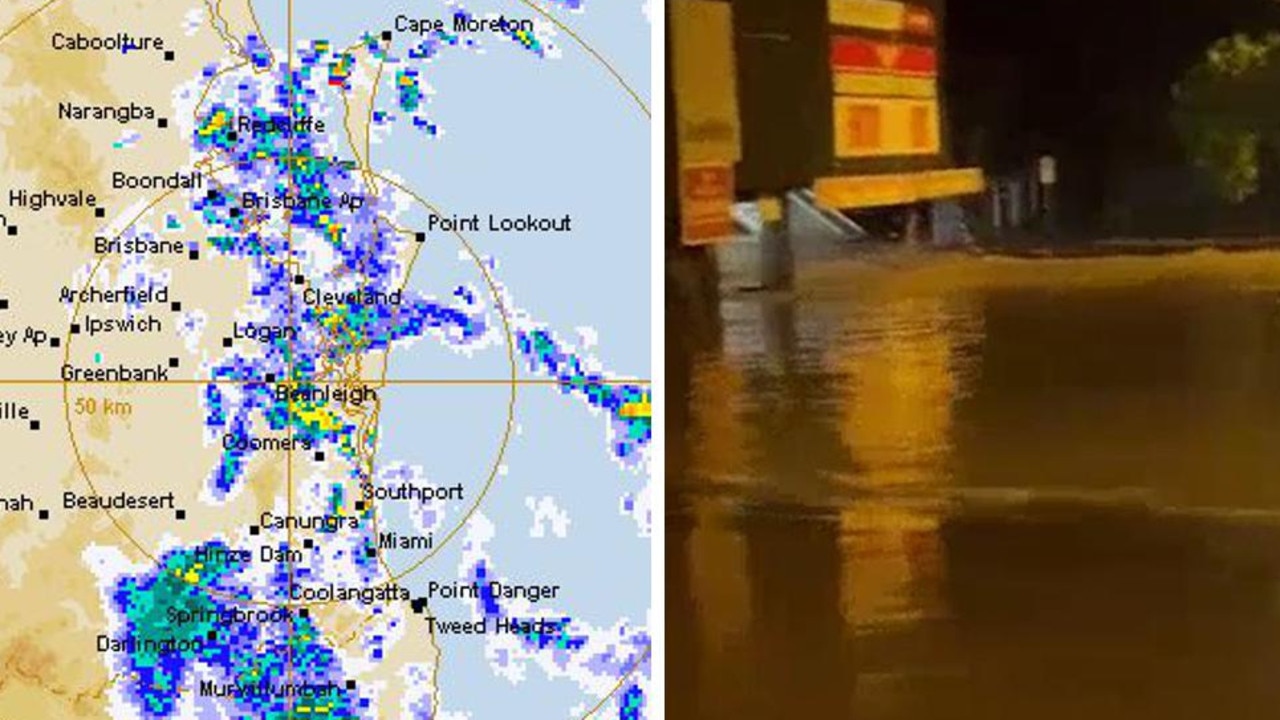Foot and mouth disease: what we know
Foot and mouth disease is an $80 billion threat to Australia’s economy and tough new bio security measures will impact passengers arriving here. Here’s why foot and mouth disease is such a serious problem.
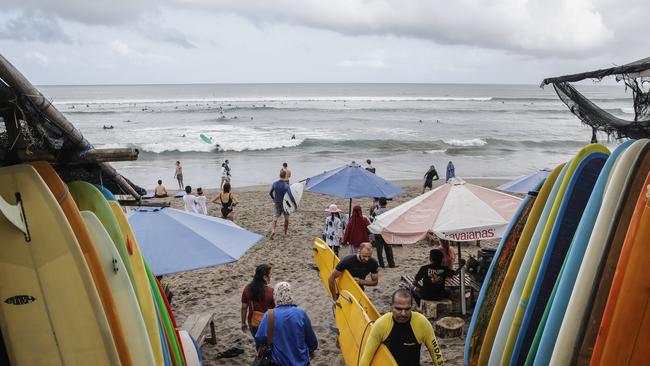
Environment
Don't miss out on the headlines from Environment. Followed categories will be added to My News.
Tough new biosecurity measures being implemented across Australia’s airports could see passengers forced to hand over their shoes upon arrival, just one measure designed to stop a local outbreak of foot and mouth disease.
The discovery on Wednesday of fragments of the disease in packaged pork at a Melbourne supermarket, and in a beef product in an air traveller’s luggage at Adelaide airport, raised concerns about the potentially devastating threat to Australia’s livestock industry. Here’s what we know.
WHAT IS FOOT AND MOUTH DISEASE?
Foot and Mouth Disease (FMD) is a highly contagious virus that affects all cloven-hoofed animals including cattle, sheep, buffalo, camels, alpacas, goats, deer and pigs. The disease can be spread through the air, or via feed lots or in water. It can be found in meat and dairy products, but the virus can also be carried through soil, on vehicles, farming equipment, clothing and footwear. FMD is identified by blisters appearing on the lips, nose, tongue and hoofs of infected animals, as well as signs of fatigue, weight loss, drooling and loss of appetite.
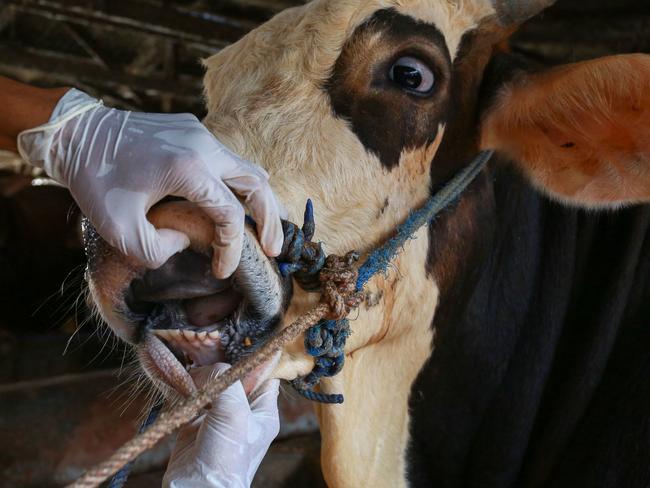
WHY ARE WE SUDDENLY TALKING ABOUT IT?
Cases of foot and mouth disease have not been detected in Australia for more than 100 years.
Indonesia notified the world of an outbreak in May, and on July 4, the virus was discovered in Bali, probably Australia’s single most popular overseas tourism destination. The Bali outbreak “sent a shiver up the spine of Australian farmers, as the risk of it reaching our shores has undoubtedly grown,” National Farmers Federation (NFF) President Fiona Simson said.
According to the Australian Bureau of Agricultural and Resource Economics and Sciences (ABARES), a widespread FMD outbreak would have an $80 billion impact on the economy, as countries that are free of the disease slap bans or restrict imports from affected regions.
Ms Simson said the Australian agricultural industry exported two thirds of everything it produced, and those strong exports markets were “all at risk if FMD reaches our shores”.
WHAT IS BEING DONE ABOUT IT?
Border security staff at Australian airports have been given unprecedented new powers to deal with incoming traveller.
From Saturday, biosecurity officers at Australian airports will be able to direct all incoming passengers to use cleaning foot mats and even hand over their shoes.
Officers will be able to use the strengthened powers within newly-declared Biosecurity Response Zones at international airports.
The Director of Biosecurity, and Secretary of the Department of Agriculture, Fisheries and Forestry, Andrew Metcalfe, made the determination to establish the zones on Friday afternoon
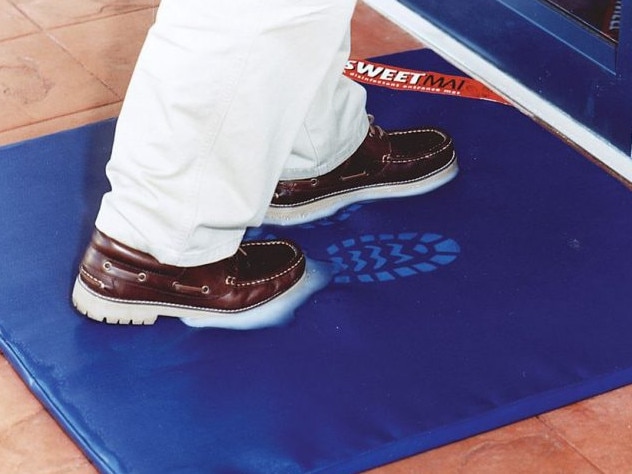
It is the first time this has been done under section 365 of the Biosecurity Act 2015.
Sanitation mats for incoming passengers had started to arrive at airports around the country and passengers will begin seeing them at customs in the coming days.
Australia is donating one million doses of FMD vaccine to Indonesia to help them stop the spread of the virus. Extra staff are being put into biosecurity at mail centres and airports to help detect any items that may be contaminated with the virus, and travellers are being informed of the dangers with in-flight video messages and signage at airports.


On Wednesday, Agriculture Minister Murray Watt announced incoming travellers would be obliged to wipe their shoes on foot mats containing a citric acid solution to break down any contaminated soil particles – or even to leave their shoes or boots behind if they were muddy.
“There are no silver bullets for biosecurity. There is no one measure that works on its own,” he said. “We all have a part to play in protecting Australia from pests and diseases. It’s vital we all do everything we can to protect our livestock industry.”
SHOULD MORE BE DONE?
Opposition home affairs spokeswoman Karen Andrews has said Australia should close its border to Indonesia, saying we “have to do what it takes”. Senator Watt has so far rejected this call.
The NFF said there should be 100 per cent screening of all passengers returning from high-risk areas, rather than the current system whereby travellers are assessed as to whether they require full screening.
“The news FMD fragments were detected on a beef product in a traveller’s luggage demonstrates the urgent need to implement the screening of every single passenger returning from high-risk areas,” the NFF said. “We also want to see more frontline biosecurity officers, and constant review of physical and technological screening methods.”
With suggestions the infected pork in the Melbourne supermarket may not have been subject to proper import controls, Ms Simson said the penalties for breaches should be toughened.
“While our system worked by picking this up, we must throw the book at those responsible if it is found that requirements were deliberately subverted and review the relevant high-risk pathways for any other examples of noncompliance,” Ms Simson said.
WHAT SHOULD RETURNING TRAVELLERS DO?
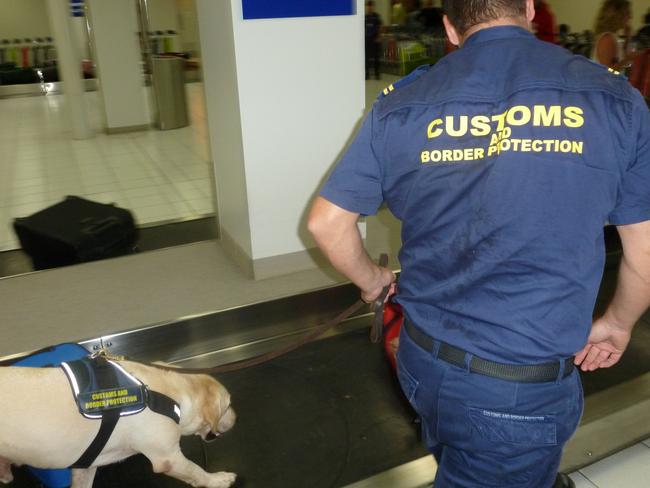
Aussies returning from Indonesia are being asked to clean, or even throw away their shoes or thongs before getting on a plane home. The NFF has partnered with a footwear company to give Aussies a discount on a new pair of thongs if they post evidence online of throwing away their old pair.
“Throw out those tired old thongs. Bin them at the airport or your hotel and post proof on social media, and we’ll help you buy a shiny new pair. It’s that simple,” Ms Simson said. “I never thought we’d be helping people buy new shoes to keep my cattle safe, but here we are.”
Travellers are also being asked not to return to farming communities immediately, as a further layer of protection.
ARE HUMANS AT RISK?
According to the federal government’s protocols for handling potential FMD outbreaks, humans can be infected with the disease if they handle infected animals and have open lesions on their skin, but resulting infections are typically mild. Infection cannot occur by eating meat from infected animals. Hand, foot and mouth disease of humans is a separate disease and not related to FMD.
WHAT HAPPENS IF WE GET AN OUTBREAK?
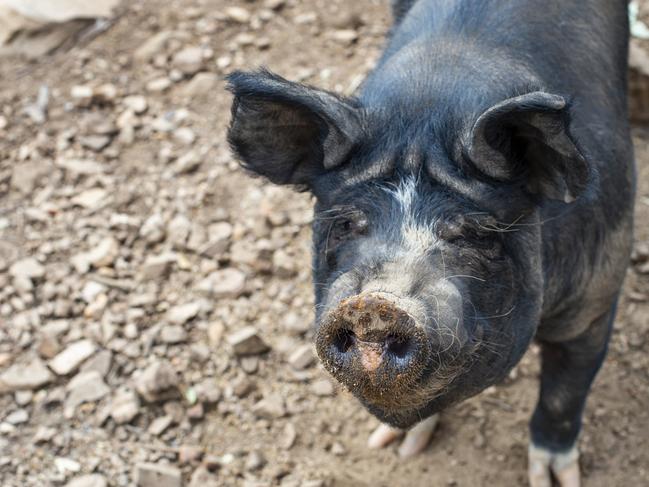
Expect quick action if a positive case of FMD is identified in Australia. Government protocols dictate that a national standstill of livestock movements will be initiated even upon the “strong suspicion” of a case.
“Destruction of infected and suspect infected animals should be completed as rapidly as
possible to reduce shedding of the virus and spread of disease,” the protocol states. Infected pigs will be destroyed first because they shed more virus than other types of farmed animals.
Vaccination will also be considered, although this will require rapid production, depending on which of the many strains of FMD is detected.
If a diagnosis is confirmed (something which usually takes about 24 hours), the government would implement restricted areas and control areas, which would limit human transit and activity to those locations.
Climactic factors (including wind strength and direction), speed of detection, previous livestock moments and the presence of feral and native animals would all be taken into consideration when deciding on how to respond to an outbreak.
In the event of a longer outbreak, the government could consider zoning arrangements, to provide certainty to global markets that products from regions with no cases were safe.
COULD THE VIRUS AFFECT NATIVE ANIMALS?
Australian native animals such as kangaroos, wallabies and echidnas have been tested for transmission of FMD in controlled settings overseas. Transmission rates were low, with researchers concluding that our native species would spread the virus “only under exceptional conditions”. But Australia does have plenty of feral pigs and cows, who would be susceptible to FMD and potentially spread it further if it arrived on our shores.
More Coverage
Read related topics:Explainers




